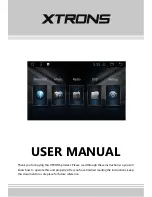
3-4
Cisco Security Appliance Command Line Configuration Guide
OL-12172-03
Chapter 3 Enabling Multiple Context Mode
Security Context Overview
a
global
command. In the case of the
global
command, the classifier does not need a matching
nat
command or an active NAT session to classify the packet. Whether the packet can communicate with the
destination IP address after classification depends on how you configure NAT and NAT control.
For example, the classifier gains knowledge about subnets 10.10.10.0, 10.20.10.0 and 10.30.10.0 when
the context administrators configure
static
commands in each context:
•
Context A:
static (inside,shared) 10.10.10.0 10.10.10.0 netmask 255.255.255.0
•
Context B:
static (inside,shared) 10.20.10.0 10.20.10.0 netmask 255.255.255.0
•
Context C:
static (inside,shared) 10.30.10.0 10.30.10.0 netmask 255.255.255.0
Note
For management traffic destined for an interface, the interface IP address is used for classification.
Invalid Classifier Criteria
The following configurations are not used for packet classification:
•
NAT exemption—The classifier does not use a NAT exemption configuration for classification
purposes because NAT exemption does not identify a mapped interface.
•
Routing table—If a context includes a static route that points to an external router as the next-hop
to a subnet, and a different context includes a
static
command for the same subnet, then the classifier
uses the
static
command to classify packets destined for that subnet and ignores the static route.
Summary of Contents for 500 Series
Page 38: ...Contents xxxviii Cisco Security Appliance Command Line Configuration Guide OL 12172 03 ...
Page 45: ...P A R T 1 Getting Started and General Information ...
Page 46: ......
Page 277: ...P A R T 2 Configuring the Firewall ...
Page 278: ......
Page 561: ...P A R T 3 Configuring VPN ...
Page 562: ......
Page 891: ...P A R T 4 System Administration ...
Page 892: ......
Page 975: ...P A R T 5 Reference ...
Page 976: ......
















































